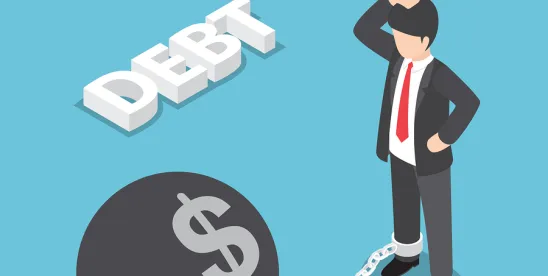In its proposed debt collection rules, the CFPB would allow a debt collector to satisfy the FDCPA requirement to provide the validation notice by sending the debtor an email or text message that includes a hyperlink to a secure website on which the notice is accessible, subject to a series of specific conditions set forth in the proposed rules. The permissibility of that approach under the FDCPA was called into question by the decision issued last week by the U.S. Court of Appeals for the Seventh Circuit in Lavallee v. Med-1 Solutions, LLC. In the decision, the Seventh Circuit ruled that the emails sent by a debt collector to the plaintiff containing hyperlinks to a server operated by the debt collector’s sister company on which the plaintiff could access and download the validation notices did not satisfy the FDCPA validation notice requirement.
The debt collector in Lavallee sent emails to the plaintiff that said nothing about a debt or debt collector in the subject line or body of the emails and included hyperlinks to a server on which she could have accessed .pdf files containing the validation notices and information about the debts. The plaintiff never opened the emails and first learned about the debt collector when the creditor called her about another debt. She subsequently called the debt collector to discuss her debts but the debt collector did not provide any disclosures during the phone call or send written disclosures thereafter. The plaintiff filed a lawsuit against the debt collector in which she alleged that it had violated the FDCPA by failing to provide validation notices as required by the statute. The district court entered summary judgment in favor of the plaintiff, accepting the magistrate judge’s conclusion that the validation notices were never sent because the plaintiff never downloaded them.
After concluding that the plaintiff had alleged a concrete injury sufficient to establish constitutionally adequate standing, the Seventh Circuit rejected the debt collector’s argument that its emails satisfied the FDCPA because they were the initial communications and contained the validation notices. (The debt collector conceded that if the phone conversation was the initial communication, it had not sent a validation notice within five days thereafter.) The Seventh Circuit ruled that the emails were not “communications” under the FDCPA because they did not “at least imply the existence of a debt.”
However, as a “second and independent reason,” the Seventh Circuit ruled that the emails did not satisfy the FDCPA because “they did not themselves contain the enumerated disclosures. “ The FDCPA provides that the validation notice must be “contained in the initial communication” or provided in a written notice “containing” the validation notice that is sent within five days after the initial communication. According to the Seventh Circuit, “at best, the emails provided a digital pathway to access the required information” but they did not “contain” such information.
In an amicus brief filed with the Seventh Circuit, the CFPB argued that the Seventh Circuit should affirm on the grounds that the linked validation notices did not satisfy the FDCPA requirement for the notices to be in writing because the debt collector had not complied with the E-SIGN Act. (The CFPB did not address the debt collector’s argument that the validation notices were contained the initial communications, i.e. the emails, via the hyperlinks.) The Seventh Circuit ruled that it did not need to consider the CFPB’s argument because it had resolved the appeal in the plaintiff’s favor on other grounds and noted that it did not usually consider arguments introduced on appeal by an amicus for the first time.
In its proposed debt collection rules, the CFPB would allow a debt collector, subject to certain conditions, to provide the validation notice on a secure website that the debtor can access by clicking on a hyperlink included in an email or text message sent to the debtor. The Seventh Circuit’s ruling that an email that included a hyperlink did not “contain” the validation notice casts doubt on whether the CFPB’s proposed approach would satisfy a debt collector’s obligation to provide the validation notice. Indeed, the inability of debt collector to use a hyperlink to provide the validation notice would completely eliminate text messages as a viable method for sending the validation notice, because a text message could not “contain” the required disclosures or support the formatting requirements set forth in the Bureau’s proposed rules for validation notices. Accordingly, if the CFPB’s proposal regarding the use of hyperlinks is adopted, debt collectors wishing to send validation notices electronically in the Seventh Circuit and elsewhere will need to consider whether to avoid the use of hyperlinks and only send emails that include the text of the notice. (If the CFPB’s interpretation of the FDCPA allowing the use of hyperlinks were to be challenged, a court asked to defer to the CFPB’s interpretation of the FDCPA would, under a Chevron analysis, first need to conclude that the statutory language “contained” is ambiguous.)
The CFPB’s proposed debt collection rules would require a debt collector sending the text of the validation notice in an email to identify the purpose of the email by including in the subject line the name of the creditor to whom the debt is owed and an additional item of information identifying the debt other than the amount. In Lavallee, the emails sent to the plaintiff said nothing about a debt or debt collector in the subject line or body of the emails. The Seventh Circuit ruled that the emails were not “communications” for purposes of the FDCPA because they gave no indication that they related to a debt. Thus, an email sent by a debt collector that complied with CFPB’s proposed requirements should not be vulnerable to a similar argument that it was not a “communication.”



 />i
/>i
